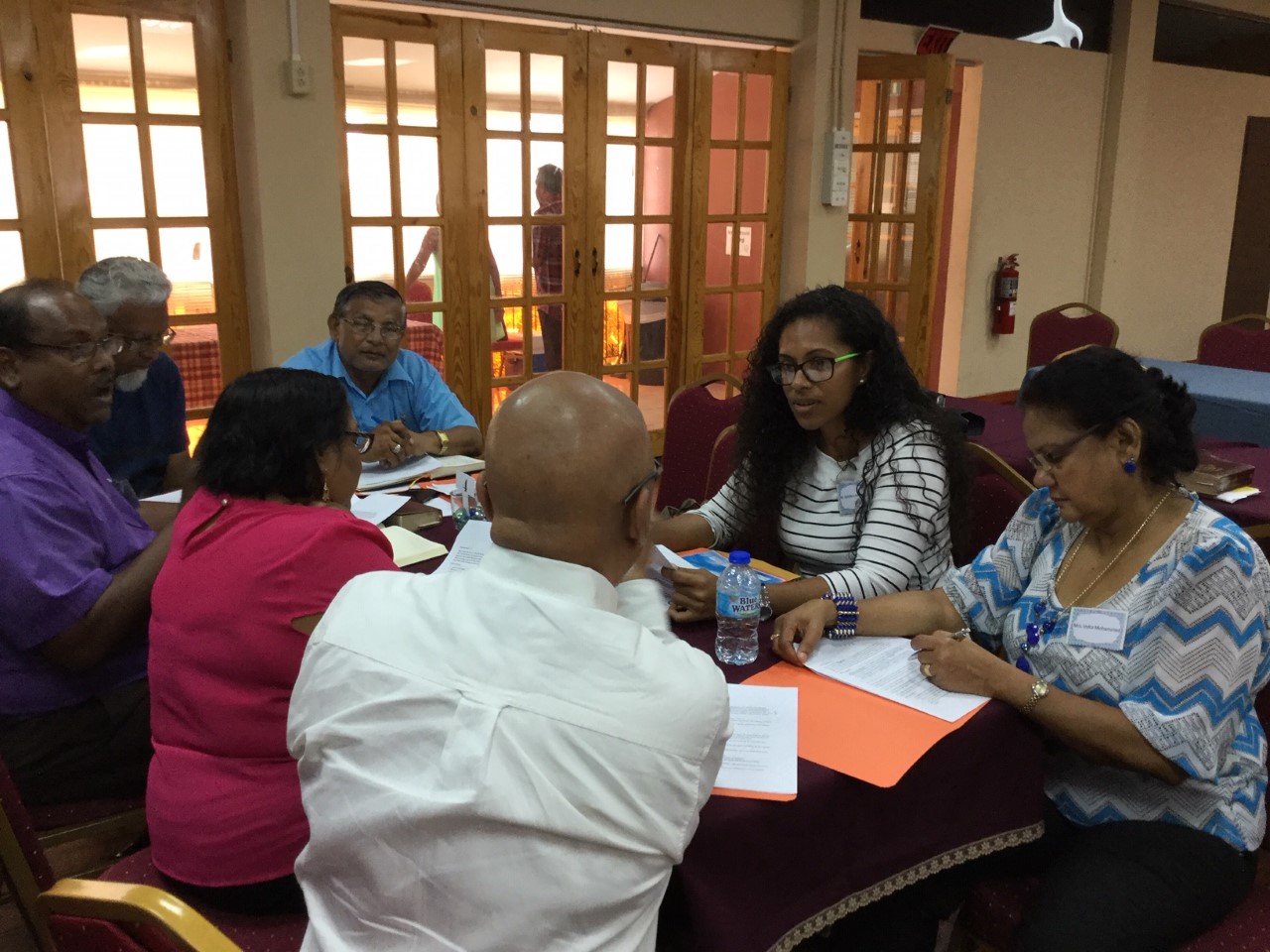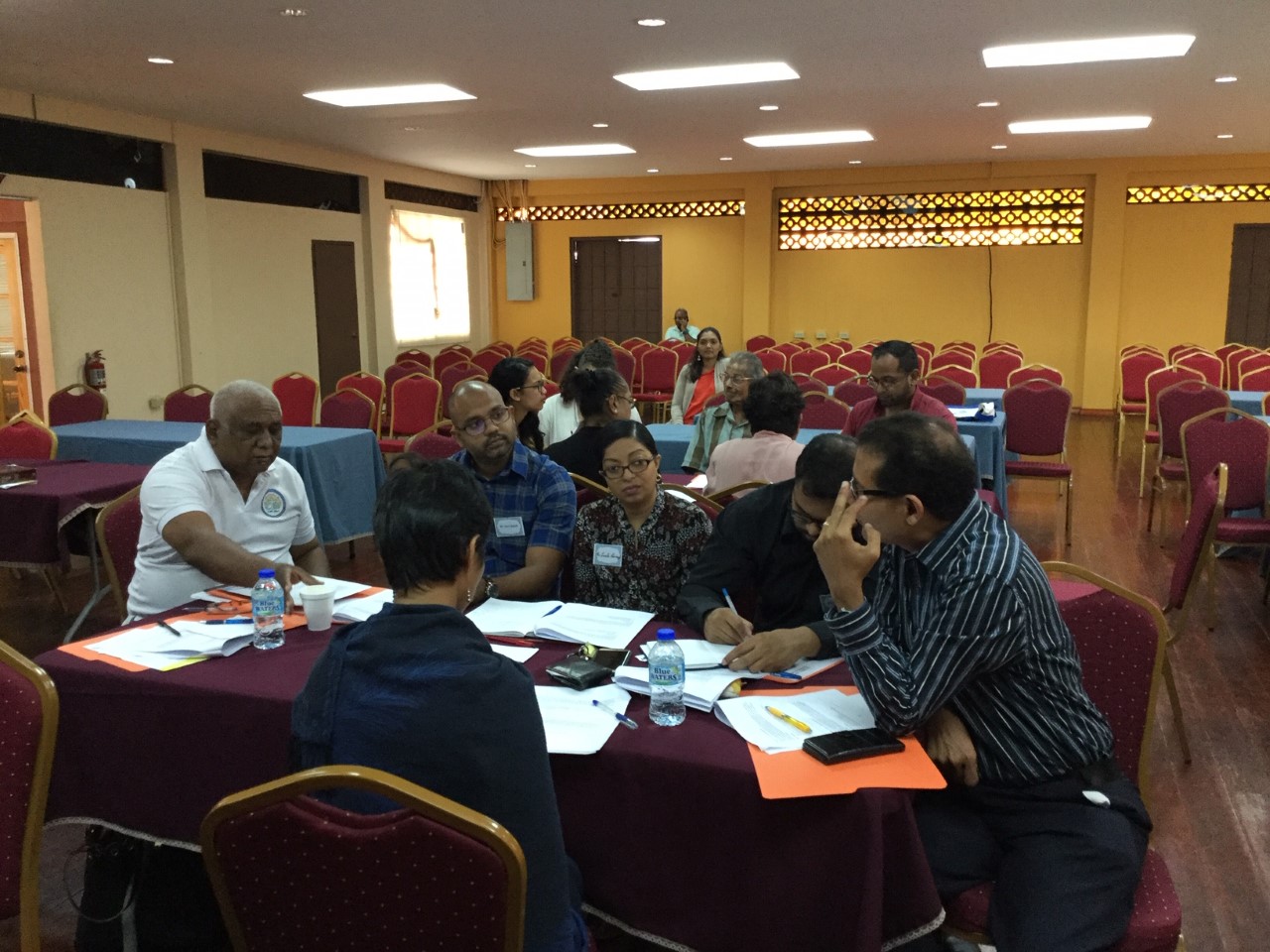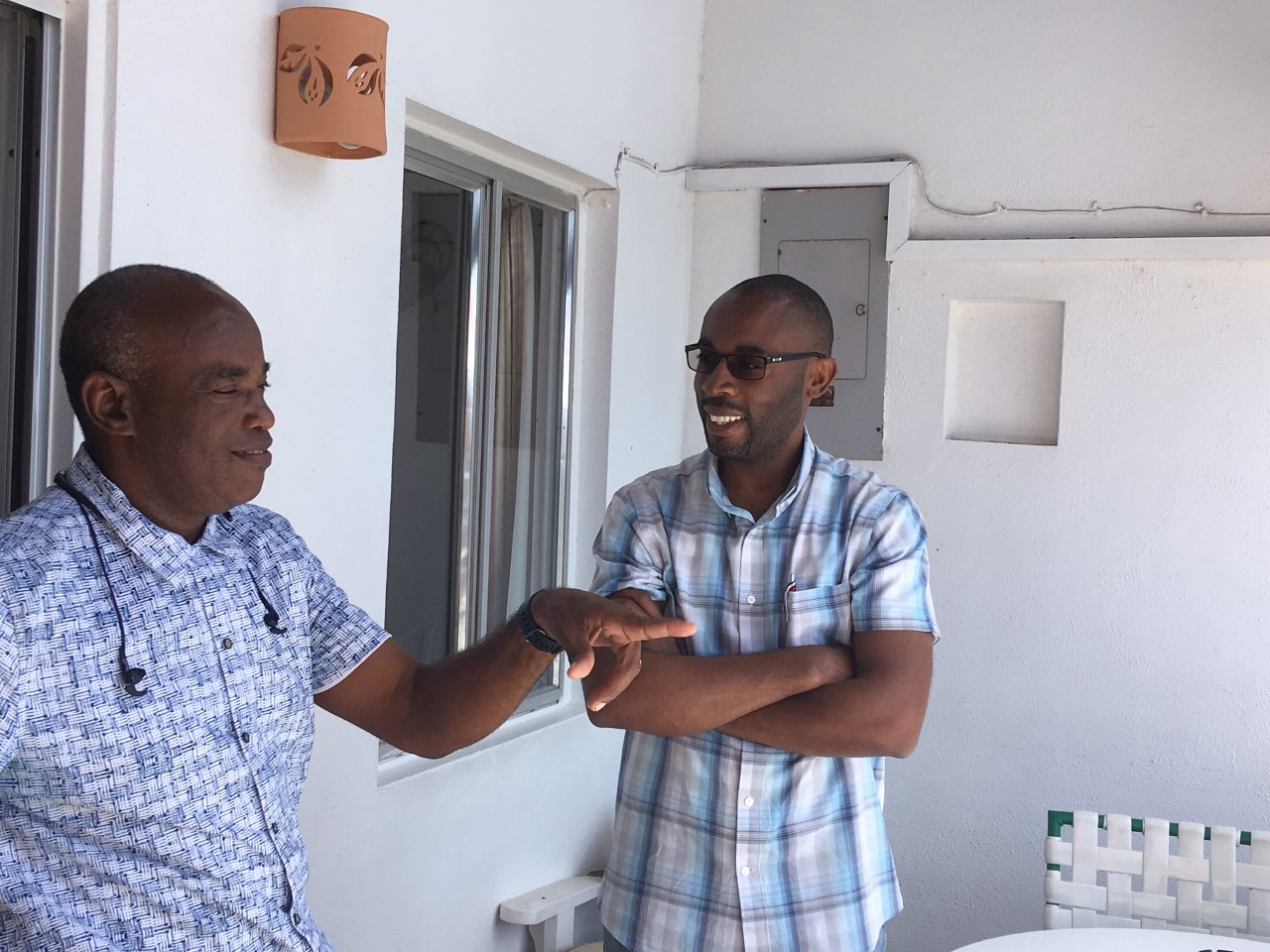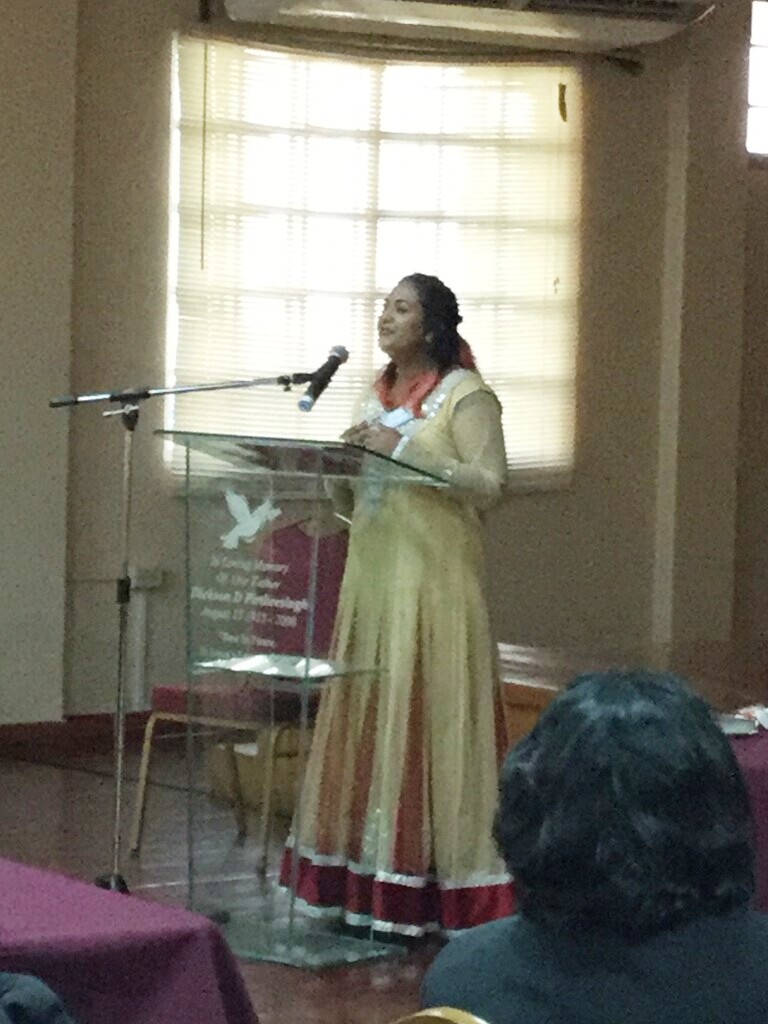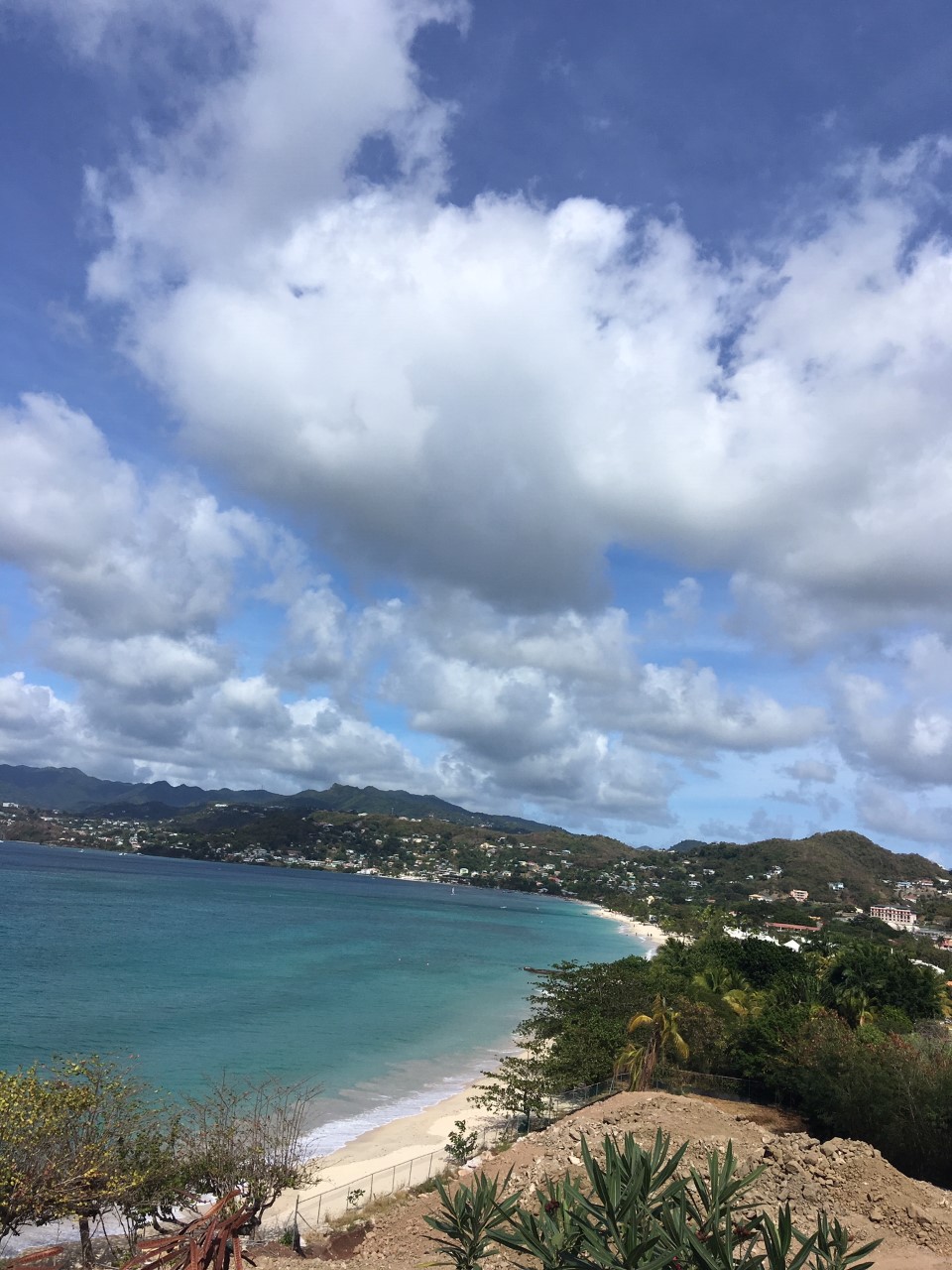A Letter from Jo Ella Holman, regional liaison for the Caribbean Region, serving in the Dominican Republic
May 2020
Write to Jo Ella Holman
Individuals: Give online to E200376 for Jo Ella Holman’s sending and support
Congregations: Give to D507535 for Jo Ella Holman’s sending and support
Churches are asked to send donations through your congregation’s normal receiving site (this is usually your presbytery)
Dear friends,
What a scary, difficult, sad, stressful, and amazing two months we have all gone through. There are images that are seared into our minds from these months: of health workers in New York City struggling to take care of too many very sick people and without the protective gear they needed; of the service of ambulance and bus drivers, agricultural workers, grocery store clerks, changing our concept of “heroic” and “essential” work; of elderly parents and grandparents in the windows of nursing homes with family outside, hands pressed against the glass. And in the churches, we see closed doors and online worship. Yes, our lives are changed for now and probably for some time to come.
But, I have also been encouraged and moved by the many stories of compassionate and heroic care, neighbors helping neighbors, strangers helping strangers, a new sense of our interdependence and a new depth of meaning to the Apostle Paul’s description of the body of Christ—when one suffers, all suffer, when one rejoices, all rejoice.
The Caribbean churches have risen to the challenges presented by rising numbers of cases of COVID-19, national lockdowns, closed borders, curfews, and closed businesses. Pastors have found ways to communicate with their congregations, using technology in ways they never imagined in places where technology is possible. I have received encouraging reflections, sermons, music, and prayers on WhatsApp, Facebook, Messenger, and Zoom. And partner churches have found ways to “be together while apart.”
In Cuba, the pastors and leaders of congregations and presbyteries join via WhatsApp each day at 9:00 am to reflect together on the devotional of the day and to pray for each other —and us! Many members of the PC(USA) Cuba Partners Mission Network have also committed to praying at that same hour for their Cuban partners, united in the Spirit.
In April, our Presbyterian Disaster Assistance made funds available to our partners’ churches to assist them in responding to the situations of COVID-19 in their communities. So, a very big Thank you! to all who have or will contribute to PDA! I worked with various church partners in this region to apply for the grants and am happy to say that all were approved. In all, $75,000 will be coming to our Caribbean partner church and organizational partners through these grants. Yeah, PDA!
Our partners are responding to the many physical needs created or exacerbated for vulnerable groups within their countries. For example, the Presbyterian-Reformed Church in Cuba will be able to continue its outreach to many of the elderly in their communities. In Trinidad and Tobago, the Presbyterian Church has already been ministering to some of the thousands of refugees from Venezuela within their borders. Now, with lockdowns, they are able to provide increased shelter and food for a portion of these strangers in their midst. And in Grenada, rural farmers and local fishermen have not been able to get their goods to towns and cities where the food is desperately needed due to lack of public transportation. So, the Presbyterian Church of Grenada is helping to provide a means of transport to link these two sectors. In other countries, the vulnerable groups are those in very poor communities or neighborhoods who cannot afford to pay for food and clean drinking water, and the churches will be able to provide some much-needed food and water to these vulnerable groups.Here in the Dominican Republic, I continue to shelter-in-place in the small town where I live. As I write, the country has surpassed 13,650 confirmed cases of coronavirus, and we continue with closed borders, a curfew from 7:00 pm until 5:00 am, and closed businesses, except for food stores and pharmacies. Masks are mandatory in public and stay-at-home orders in-force unless for essential trips outside. Unfortunately, many are not complying (including where I live) and so the numbers continue to rise.
The Dominican government has very responsibly followed all of the protocols set up by the World Health Organization and other medical institutions to “flatten the curve.” WHO has provided test kits, and more comprehensive testing has begun here. Deaths have, mercifully, been fewer than in the U.S. and many other places, at 448. So far, the numbers of sick have not overwhelmed the hospitals, though I fear it is getting close. There are reportedly only 74 ventilators in the country. I plan to return to the U.S. when the situation permits, and planes are once again flying between our countries.
A number of connections around the COVID-19 situation in the Caribbean have arisen related to U.S. policies. You may not have read that the U.S. has prohibited U.S. companies from selling medical supplies and ventilators to other countries, and this barrier has had a significant effect in the Caribbean, where the U.S. is the major trading partner. For Cuba, under the U.S. embargo, medical supplies and COVID-19 test kits from China and humanitarian funds from Switzerland and other countries were blocked. And, extremely worrying, the U.S. has been deporting people to the Caribbean and Central America who have been exposed to the virus while held in U.S. detention centers. Upon their arrival, the receiving governments have tested the newcomers and found that a large majority are positive for COVID-19, causing protests from these governments. This situation has happened several times already in Haiti, which, you will know, has a very fragile health system and an extremely impoverished population.
These are all motives for advocacy with our own Congressional representatives and the administration to help protect the populations in countries that are less-able than the U.S. to provide adequate health care in the face of COVID-19. With all of the problems the U.S. and western European countries have had containing the virus, you can imagine the difficulties for other parts of the world.
I pray God’s blessing on you, your families and communities in these difficult times—for your health and well being. Please join me in prayer and advocacy for our brothers and sisters in the Caribbean. And thank you for continuing to accompany and support me in ministry with our Caribbean partners.
May the peace of Christ be with you,
Jo Ella
![]() You may freely reuse and distribute this article in its entirety for non-commercial purposes in any medium. Please include author attribution, photography credits, and a link to the original article. This work is licensed under a Creative Commons Attribution-NonCommercial-NoDeratives 4.0 International License.
You may freely reuse and distribute this article in its entirety for non-commercial purposes in any medium. Please include author attribution, photography credits, and a link to the original article. This work is licensed under a Creative Commons Attribution-NonCommercial-NoDeratives 4.0 International License.
